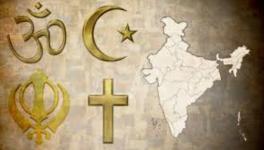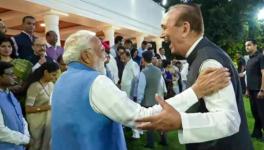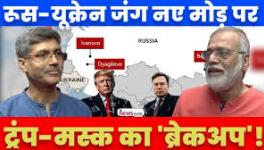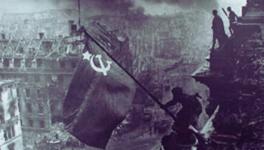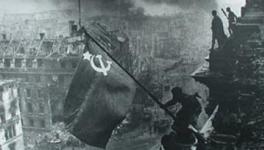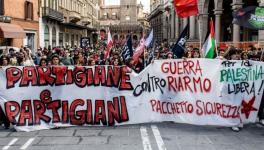World War II: Eighty Years on, Versailles’ Long Shadow
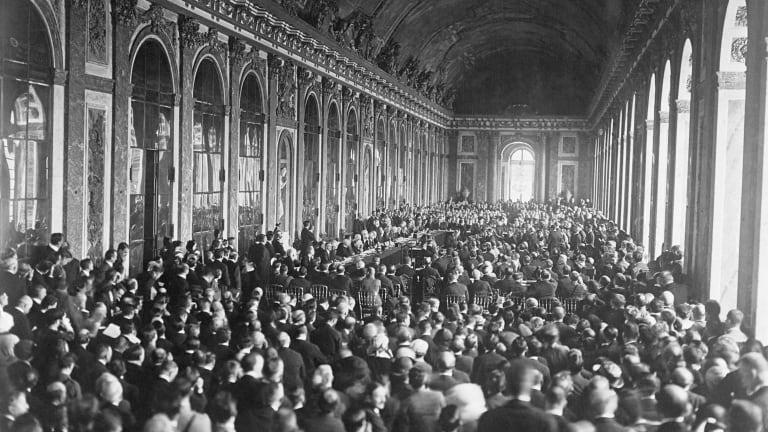
The Hall of Mirrors in the Palace of Versailles, France where the treaty was signed. Image Courtesy History
The Second World War began eighty years ago on 1 September 1939. The world plunged into a war that killed some fifty million people in five continents. Extraordinarily, most of Europe had been expecting its outbreak for twenty years, ever since the Treaty of Versailles was signed in July 1919 to punish Germany for the First World War.
No peace treaty in history paved the way for war as did the Treaty of Versailles in 1919. Conceived in victory, drafted in a spirit of vengeance and half-heartedly implemented, this peace treaty became an interregnum between two terrible wars. This treaty sought to give its signatories a measure of justice. Its genesis—as of most things in the world—lay in the past.
The First World War of 1914-1918 was the cumulative effect of events in the 19th century. Napoleon’s wars of conquest sowed the seeds of nationalism and liberalism in these lands. The Concert of Europe comprising of four European rulers sought to maintain the old order of privileges and inequality. Napoleon’s death in 1821 did not nullify French revolutionary ideas. It only sharpened their appeal.
Ideas of nationalism and demands of subjugated people for self-governance gained momentum throughout the nineteenth century. Ironically, this did not bring peace. The unification of Italy and Germany propelled them to build empires though they had once opposed alien imperial rule. Rival imperial ambitions led to a frenetic arms race, wars of conquest in Asia, the “scramble for Africa” and rivalry for domination over the Balkans.
Eastern Europeans had fought for freedom from the Ottoman Empire, but their freedom made them pawns in the dangerous rivalry between two empires—Russia and Austria. All these factors finally coalesced in the outbreak of the First World War in July 1914.
The global war ended in November 1918. The Russian and Austrian empires ended, their monarchies were deposed or killed. France and Britain suffered immense loss in manpower. They made tremendous losses in their economic and commercial prosperity. Their empires continued, but they were diminished. It would take another global empire to end them completely.
The Treaty of Versailles was signed on 28 July 1919, after months of protracted negotiations in the splendid Palace of Versailles, which was once the residence of the kings of France. The locale was intended to symbolise French victory while its size accommodated the numerous delegates to the conference. The heads of governments of Britain, France and the United States of America (USA) were present.
Vanquished Germany was not invited to the deliberations. This set the tone for future hostilities. In 1919, a defeated Germany was presented with the peace terms by Britain and France, the victors of World War I, along with an ultimatum: sign or be invaded. The German government signed the Treaty reluctantly. Conservative parties considered it a betrayal. A few politicians involved in accepting and signing the treaty were called traitors and killed.
Germans found the terms of the treaty repugnant, an attack on their pride and progress. They were angered by the punitive terms and felt it was unjust to punish the people for what their militarist government had done to wage war in 1914.
This treaty created a deep sense of resentment in Germany: was their nation alone responsible for the war? Territories which were part of the German empire were redistributed to the victors or their allies. Huge reparations were imposed. The treaty benefited the victors and punished the vanquished. It set the stage for a future conflagration.
If the outbreak of World War II can be attributed to any single factor, it is Germany’s humiliation and quest for revenge. As the Corsican proverb goes, ‘dig two graves when you go to seek vendetta’. Germany’s thirst for vendetta destroyed Nazi Germany, but it also spelled the end of the British and French empires and ushered in a new world order.
Yet, it was not a simple equation of two camps. While Britain professed antagonism towards Germany, there were Britons who covertly encouraged Germany’s repudiation of the terms arrived at in Versailles. Throughout the late 1930s, the British government watched the rise of Adolf Hitler and his Nazi Germany. The leader of this policy of appeasement was Winston Churchill, a British aristocrat whose paranoiac fear and hatred of Bolshevik Russia seemed (according to British prime minister from 1916 to 1922 Lloyd George) like “a madness of the brain.”
In a danse macabre, France and Britain relished the thought of a Nazi Germany and Communist Soviet engaged in a war to the finish. “Let the two devils (Hitler and Stalin) bleed each other to death,” Churchill had earlier remarked wistfully to his king, Edward VIII. Stalin relished the idea of Germany embarking on a war of revenge against France and Britain. A long drawn struggle between imperialist nations would weaken both sides while a neutral Soviet Union would concentrate on building its heavy industries and armaments.
To attain this, Stalin needed time. However the German invasion of Czechoslovakia left Stalin with no illusion of an enduring friendship with Hitler. The day of reckoning was a matter of time. As early as in 1931, the aristocrat, educationist and metaphysical poet Rabindranath Tagore wrote in Letters from Russia, “[The] Russian people must build their strength swiftly. They have many adversaries.”
Russia was also apprehensive of the rise of Japan, which had already defeated Russia in 1905 over acquiring a Pacific Ocean port. Japan continued to eye the Pacific coast of Russia with its endless timber, fuel and minerals. However, once Japan allied with Germany and Italy through the Berlin-Tokyo-Rome Axis, Stalin avoided confrontation with the Axis powers. He thought that Germany and her allies would eventually go to war against Britain and France.
Britain was then the superpower of the world, with territories that stretched from London to Hong Kong and with the immense resources of her vast Indian empire. It would not have been difficult to contain Germany. Britain chose not to; a resurgent Germany would eventually challenge Soviet Russia and that would kill two adversaries with one stone.
Sensing this through interactions with British conservative politicians, Hitler proceeded to repudiate the punitive terms of the Treaty of Versailles. Germany began rearming in violation of the treaty. The demilitarised zone was militarised, the Maginot Line built by France to halt Germany was crossed. France protested but it was to no avail.
Western European powers who were signatories to the Versailles Treaty watched Japan invade China in 1931, Italy invade Ethiopia in 1936, Germany invade Austria and Czechoslovakia in 1938. The provisions of the League of Nations were openly violated.
Stalin now acknowledged the possibility of war with Germany. Over a decade, he had built Russian military and industrial might. Still, he still needed time to prepare for the inevitable war against Hitler, who had declared his hatred of Soviet Union in his infamous book, Mein Kampf, in which he calls the Slavs untermenschen or ‘inferior people’.
Notwithstanding these developments, the Soviet Union and Germany signed the Molotov-Ribbentrop Pact in August 1939. This caused immense anxiety in Western Europe. Hitler had long planned to invade Poland, a nation to which Great Britain and France had guaranteed military support in the event of such an attack from Germany. Hitler’s pact with Stalin was designed to keep the Soviet Union neutral in the event of war against Britain and France. As early as in 1939, German generals had warned Hitler against a war on two fronts. Hitler wanted a free hand to deal with the occupation of Poland. Further, Stalin had agreed to the partition Poland as Russia, Prussia and Austria had done in the 18th century.
On 1 September 1939, Hitler invaded Poland from the west. Two days later, France and Britain declared war on Germany.
Thus began World War II.
Hitler overran Europe within several months. The German occupation of France and the crushing blitzkreig of Britain’s major cities was Hitler’s answer to the humiliation of Germany by the Treaty of Versailles.
Soviet intelligence officers had gathered information that Hitler had ordered the invasion of Russia in June 1941 in Operation Barbarossa. In 1941, the Nazi Army laid siege to Leningrad in which three million people died from gunfire and starvation.
The battle of Stalingrad followed, which extracted a huge toll of Russian lives, but the defeat of Germany at Stalingrad began the end of Nazi Germany. Japan attacked Pearl Harbour in 1941. Her imperial ambition to dominate Asia ended with the atomic incineration of Hiroshima and Nagasaki.
It was the world’s most terrible warfare. Yet, out of the debris of death and destruction emerged a new world order. Colonial empires were dismantled, new nation states were formed by once subjugated people, the United Nations was formed to lay the foundations of a world that is to be governed by international law rather than brute force. International agencies were established to bring the world together in matters of science, education and culture; to initiate programs to improve health, protect refugees and safeguard human rights.
But the lust to acquire resources of weaker nations, the violence this breeds and the amorality of power politics has still not changed.
Achala Moulik is a retired civil servant. Views are personal.
Get the latest reports & analysis with people's perspective on Protests, movements & deep analytical videos, discussions of the current affairs in your Telegram app. Subscribe to NewsClick's Telegram channel & get Real-Time updates on stories, as they get published on our website.











